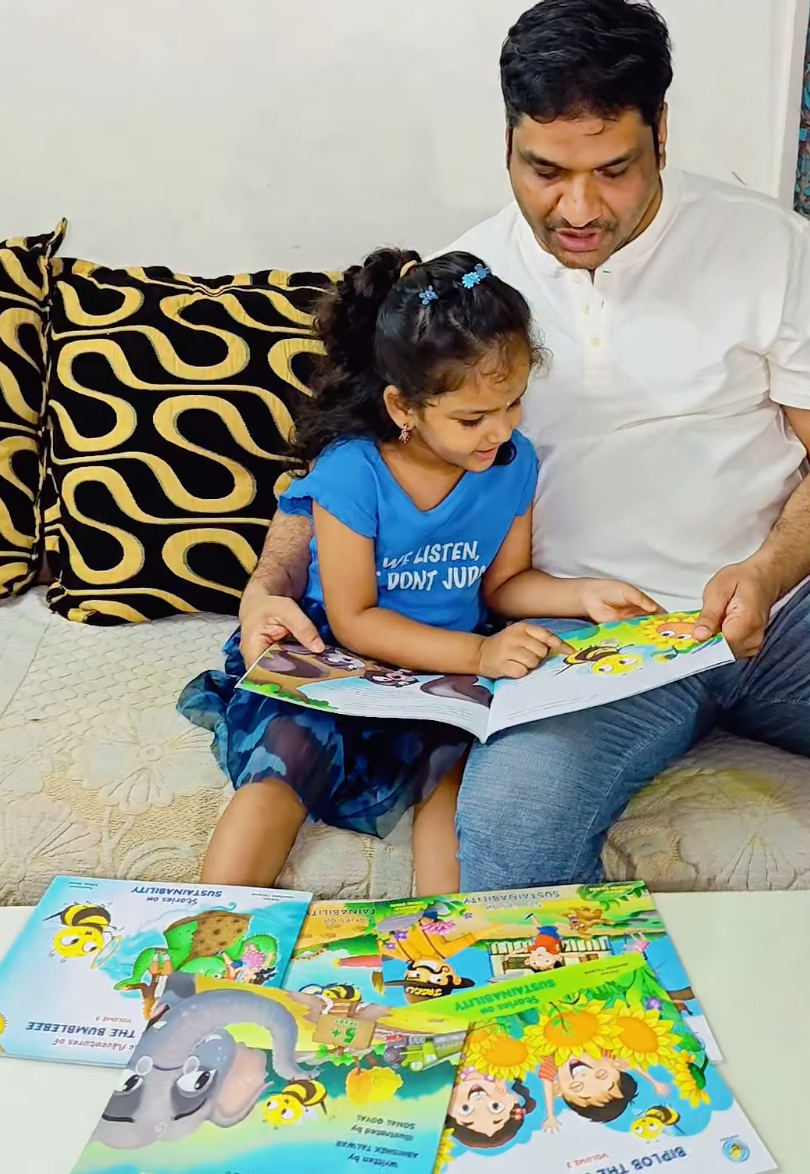How Screen Time Affects Children’s Well-Being
Due to the easy accessibility of screened devices, children’s screen time has risen exponentially. Excessive screen time impairs the child's physical and mental well-being by impacting their sleep, mood and concentration.

In today’s digital world, screened devices have become an integral part of our daily lives. From entertainment options like TVs, tablets, and hand-held gaming consoles to educational tools like Kindle and digital books, and even practical conveniences such as order screens in restaurants or self-checkout stations at stores, screens are everywhere. They’ve seamlessly become a part of our daily lives.

Recommended Screen Time Limits for Kids
According to the Indian Academy of Pediatrics:
1. Children below 2 years of age should not have any screen time.
2. Children between the age of 2-5 years old should have maximum 1 hour of supervised screen time.
3. Children between the age of 5-10 should have less than 2 hours of screen time.
One of the biggest challenges parents face today is how to effectively curb and reduce their kids’ screen time.
The following are effective recommendations parents should adopt for the benefit of their kids.
- Set Clear Rules and Limits: Establish daily screen time limits based on your child’s age and stick to them consistently. Use device features or parental control apps to enforce these limits. Setting clear boundaries helps children understand expectations and creates a consistent routine, making it easier to manage screen use.

- Create Screen-Free Zones: Designate areas such as the dining room, bedrooms, and family living spaces as screen-free zones to encourage family interaction and reduce passive screen use. This promotes healthier habits and more face-to-face communication within the family.
- Schedule Screen-Free Times: Designate times when screens are not allowed, especially during meals, homework, and at least one hour before bedtime to support better sleep routines. Having screen-free periods helps children engage in other essential activities like rest and family bonding.
- Encourage Active Alternatives: Promote outdoor play, sports, reading, or creative hobbies as fun alternatives to screen time. Join your kids in these activities to motivate them and make these activities more enjoyable and engaging.
- Be a Role Model: Demonstrate balanced screen use yourself as kids often imitate parental behaviour. Show enthusiasm for non-screen activities alongside your child, which encourages them to follow suit.

- Reward Screen-Free Behaviour: Use positive reinforcement to encourage screen-free activities through praise, rewards, or privileges. This helps motivate children to spend less time on screens and more time on productive or creative activities.
Honestly though, you will find that being screen-free is a reward in itself!
Managing your child's screen time can feel like a challenge, but with consistency, it is very much possible to create a balanced lifestyle. By setting limits, encouraging active play, and leading by example, parents can help their children enjoy the benefits of technology without its drawbacks. Remember, small, steady steps make a big difference in fostering habits that support your child’s growth, well-being, and happiness for years to come.





1 comment
Purvi Mehta
Very helpful article
Leave a comment
This site is protected by hCaptcha and the hCaptcha Privacy Policy and Terms of Service apply.